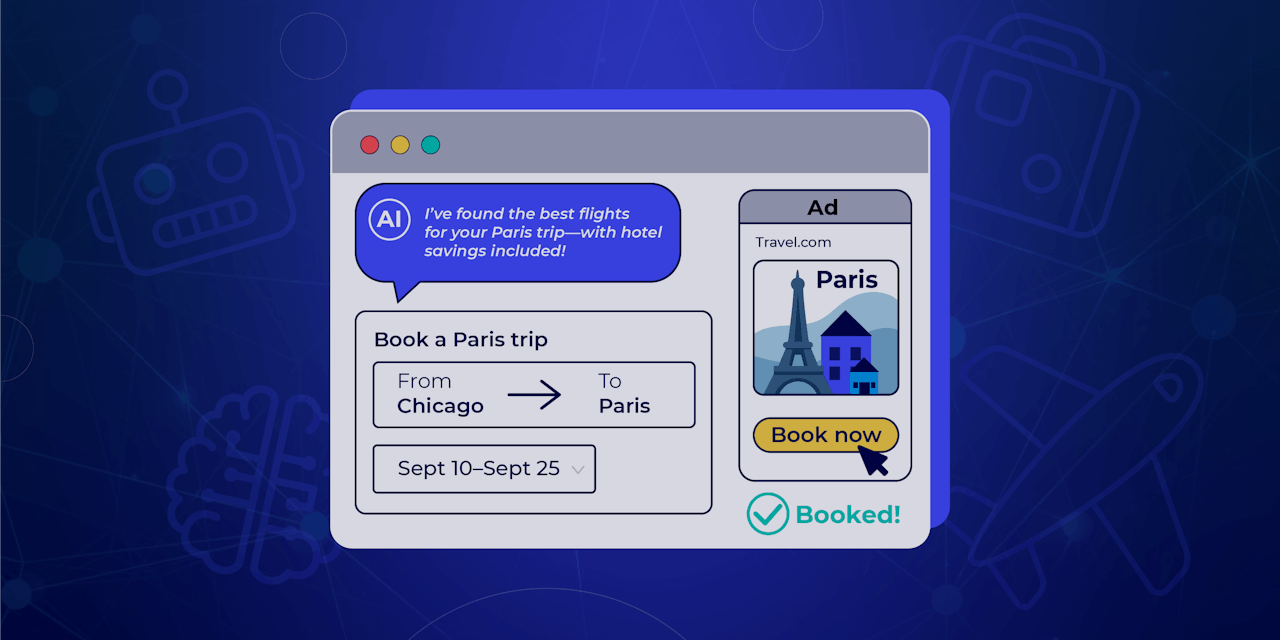
"Since the advent of the internet, the predominant model for advertising has been CPM (cost per thousand), which is based on the number of times an ad appears and CPC (cost per click), which is based on the number of times an ad gets clicked. Of course, the beauty of digital advertising is that you can measure conversions tied to impressions and clicks, but CPA (cost per acquisition) never caught on because it's too hard to prove that a specific ad delivered a certain outcome."
"Indeed, when you have AI agents doing your research, presenting your options, and handling your transactions, there's no reason to price ads that appear along the way on a CPM or CPC. Instead, the agentic AI platforms can just charge a CPA to the brand(s) that ultimately secured the conversion(s). Let's take the trip to Paris that I used in my last piece as an example - but this time, using agent mode."
Digital advertising historically relied on CPM and CPC metrics tied to impressions and clicks, while CPA failed to scale due to weak attribution. Agentic AI changes the economics by conducting research, presenting options, and completing transactions on behalf of users, enabling platforms to charge brands based on acquisitions rather than views or clicks. AI agents can bill airlines or hotels for bookings or charge intermediaries consulted during the process. Zero-click search and agent-driven interactions undermine traditional search ad growth, creating a 'negative-1 moment of truth.' These shifts raise concerns about agent objectivity if inclusion depends on payment.
Read at The Drum
Unable to calculate read time
Collection
[
|
...
]